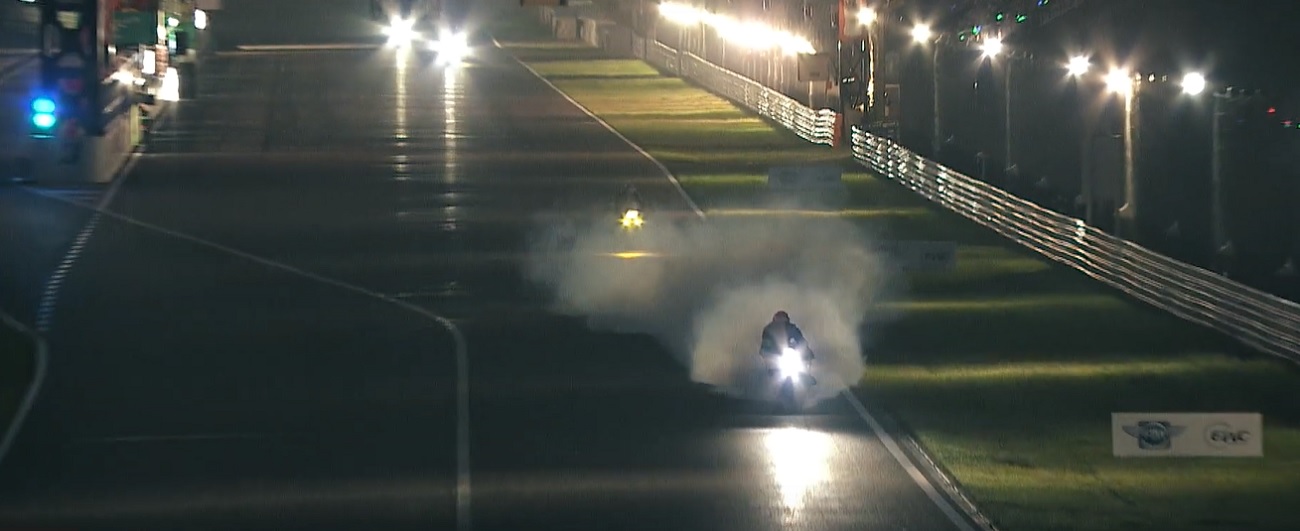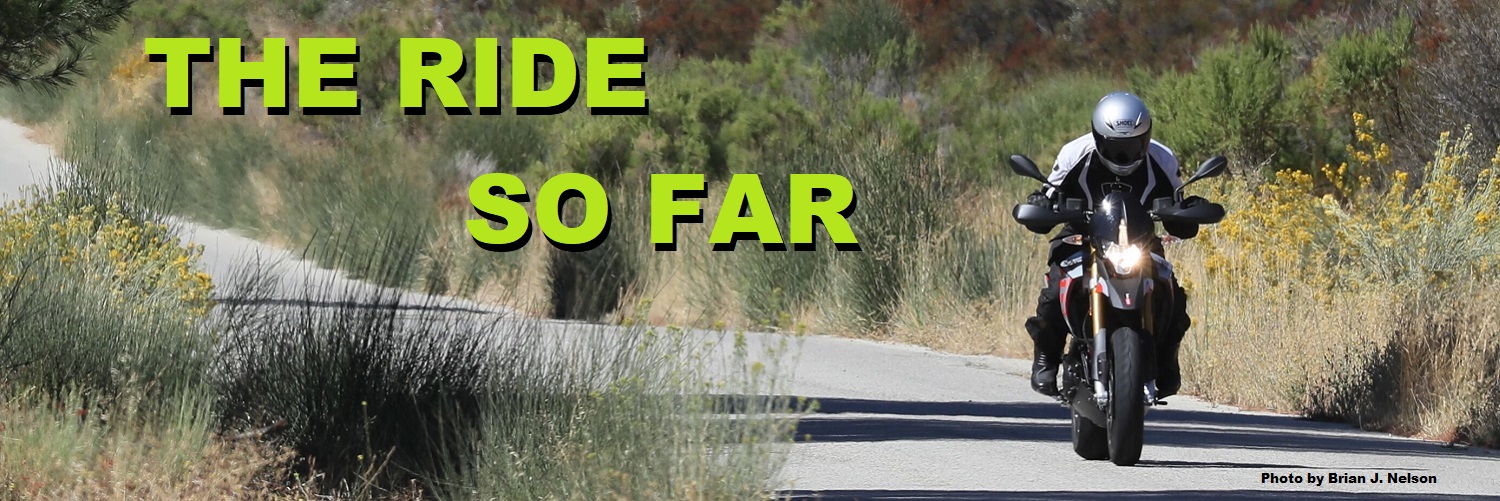An eight-hour endurance race does not normally have so much drama packed into the last few minutes. But that was the case with the Suzuka 8 Hours this year. And the most important part of the drama occurred after the race was over and the Superbikes were rolled away.
Four-time World Superbike Champion Jonathan Rea on the Kawasaki Racing Team had nearly a 20-second lead in the final minutes of the race in Japan (quite a slim margin after eight hours of racing, but enough to inspire confidence) when a Suzuki engine exploded. The rider did not get off the track quickly and instead oiled down a long stretch of the racing line. Mistake one. Mistake two was that race control did not immediately wave a red flag.

In the final minutes of the Suzuka 8 Hours, an engine grenaded on the Suzuki Endurance Racing Team motorcycle, spraying the track with oil and setting up a confusing finish to the race. Image from EWC video.
Around came Rea on his Kawasaki. He hit the oil and crashed. Then the red flags came out.
That appeared to hand the victory to the Yamaha Factory Racing Team of WSBK riders Alex Lowes and Michael van der Mark and Suzuka specialist Katsuyuki Nakasuga and rob Rea and his WSBK teammate, Leon Haslam, of the victory. Kawasaki filed an appeal, however. and after Rea said a dejected goodbye to the team and left the track, he found out he’d actually won.
The red flag rule that’s the problem
This same issue caught out Tom Sykes in the WSBK British round at Donington Park earlier this summer. Sykes was fighting with Rea for the win in the Superpole sprint race when red flags came out due to oil on the track. Sykes crashed on the oil and couldn’t get his bike back to parc ferme within five minutes, as the rules require. That robbed him of a podium finish, something that would mean a lot to his new effort with the BMW Motorrad WorldSBK team. It also had the effect of punishing him in race two that day, since the Superpole race sets the grid for the second full-length race of the weekend.
At Suzuka, the situation was almost even more unfair — until Kawasaki’s appeal was accepted. In the rule book governing the endurance racing series, there’s no five-minute rule for a race-ending red flag. After hearing the appeal, the FIM decided the final results should be based on the order of the last completed lap. At that point, Rea was well ahead of Lowes on the Yamaha, so KRT got the victory and broke Yamaha’s run of success at the 8 Hours, a race that means a lot to the manufacturers in Japan.
Writing a rule book that covers every possible situation while avoiding loopholes a team can exploit or unintended consequences that unfairly punish someone is a difficult task. Red flags are an especially tricky situation. One one hand, you want to make sure a racer doesn’t benefit from causing a red flag, because that can lead to chicanery. (Anyone else remember Aaron Yates lying down on the track at VIR to ensure a red flag and allow him to get back in the race?) On the other hand, the cases of Sykes in WSBK and Rea/Haslam at Suzuka show that a red flag can lead to unfairness (Sykes) or potential unfairness (Rea/Haslam) narrowly averted by appeal.
I expect there will be some work on the rule books in the off season to try to prevent more of these episodes.
